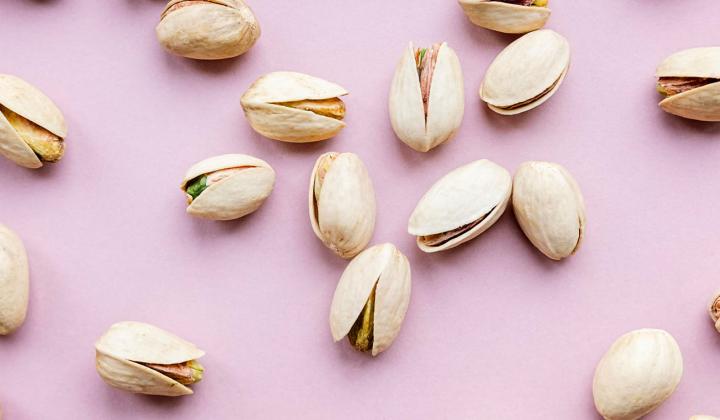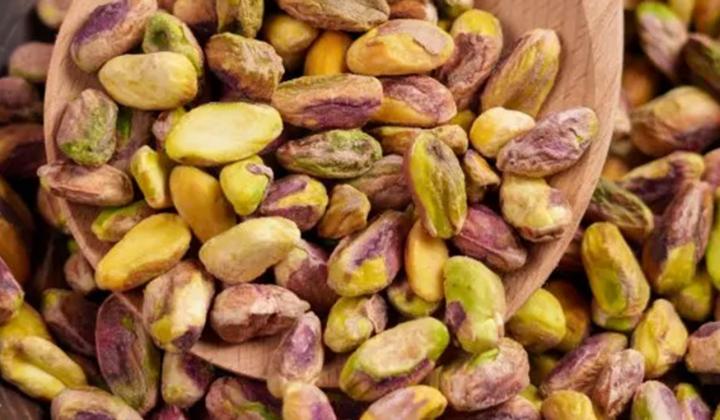Nuts and Seeds Are Staples
The Mediterranean diet is particularly rich in nuts like almonds, hazelnuts, and walnuts, says Moon.
"The PREDIMED trial found that a Mediterranean diet supplemented with nuts reduced the risk of heart attack, stroke, or cardiovascular-related death by 28% and was linked to better memory and cognition. There is a broad body of research on nuts for heart and brain health. The two are closely linked.”
Pistachios are another healthy nut choice. A recent randomized controlled trial funded by the American Pistachio Growers and the National Institutes of Health found that daily consumption of 2 ounces of pistachios (about two handfuls) significantly increased macular pigment optical density, a marker for eye health, in six weeks.
Tammy M. Scott, PhD, the lead researcher and a research assistant professor at the Friedman School and assistant professor at Tufts University School of Medicine, Department of Psychiatry, attributes this to the fact that pistachios are the only nut that provides a substantial source of lutein. This antioxidant protects the eyes from blue light damage and may reduce the risk of age-related macular degeneration.
“This is especially good news for people who don’t regularly consume large quantities of other lutein-containing foods such as kale and spinach," says Dr. Scott. "Beyond eye health, previous studies have shown that pistachios help support heart health and can help manage blood sugar with their healthy fats and fiber, and they’re a good plant-based source of complete protein. They contain essential vitamins and minerals, like B6, which could support overall immune system health and help your body convert food to energy throughout the day.”
The fat, fiber, and protein in nuts like pistachios also help you feel satisfied and are useful for weight management, Dr. Scott says.












